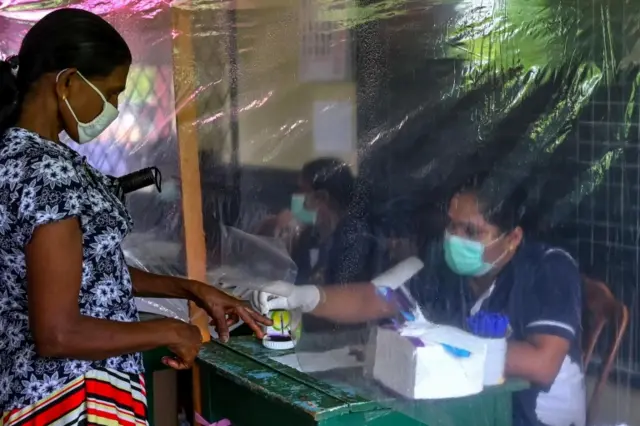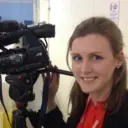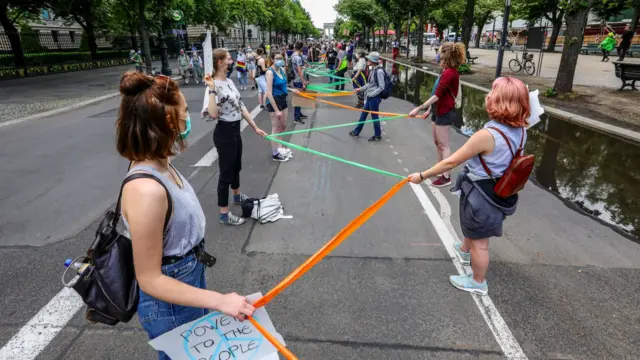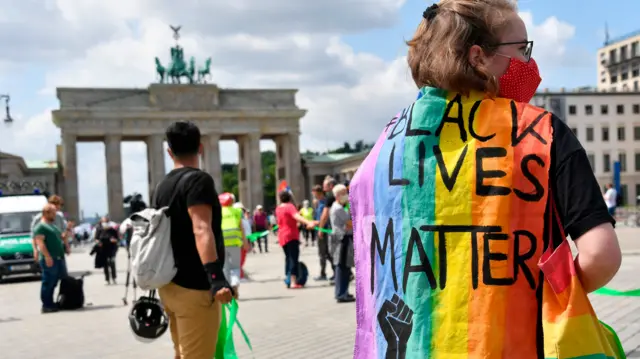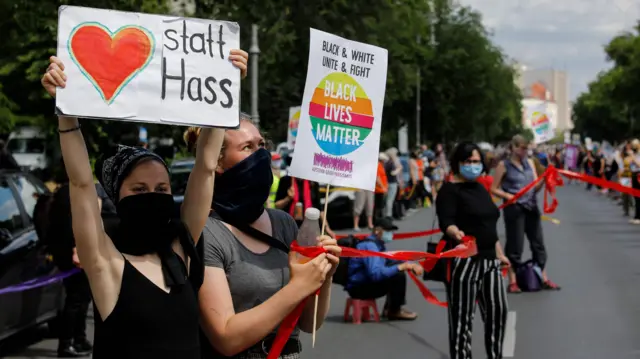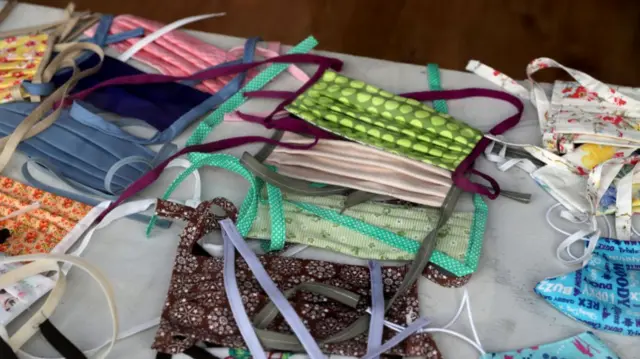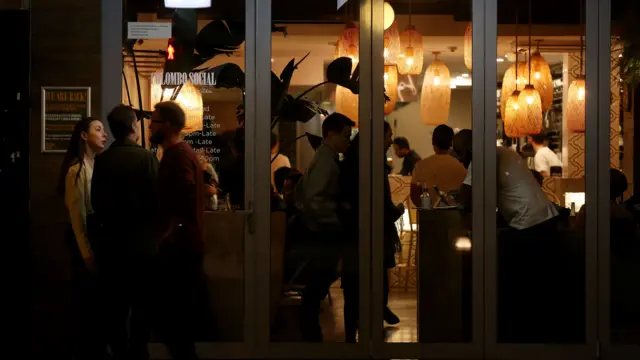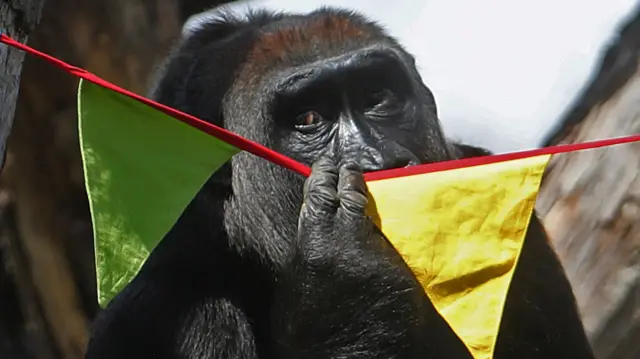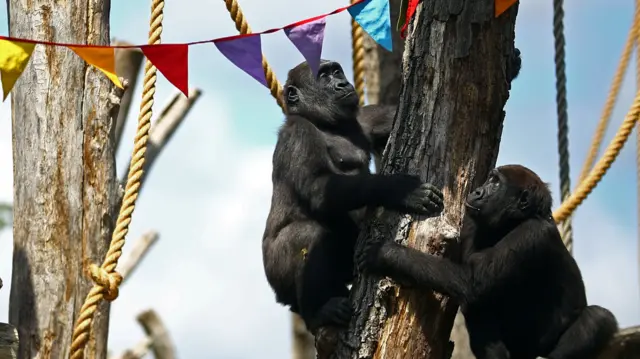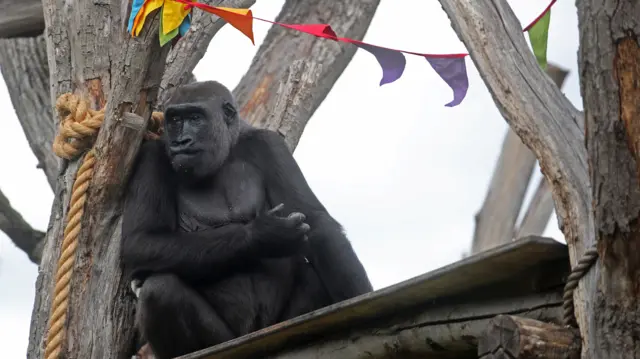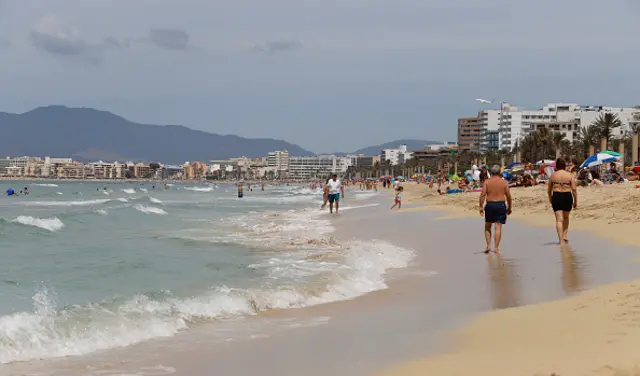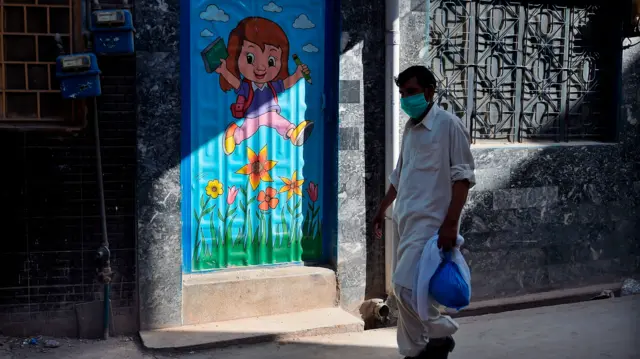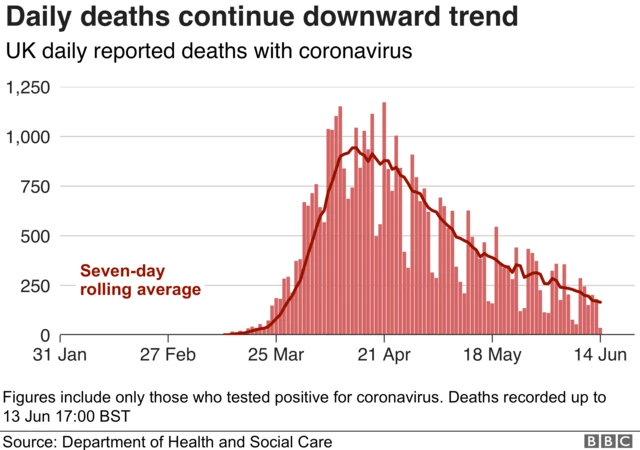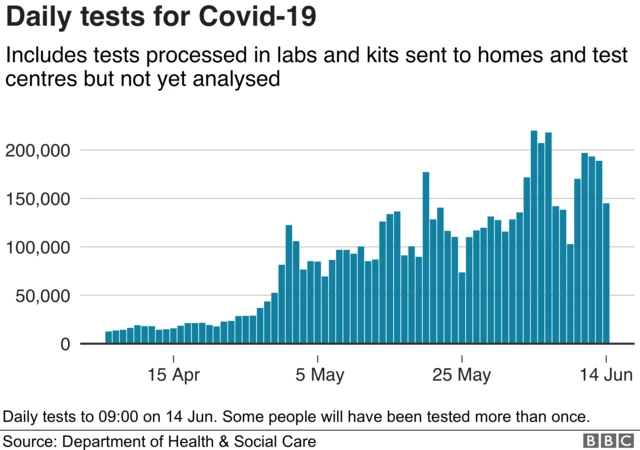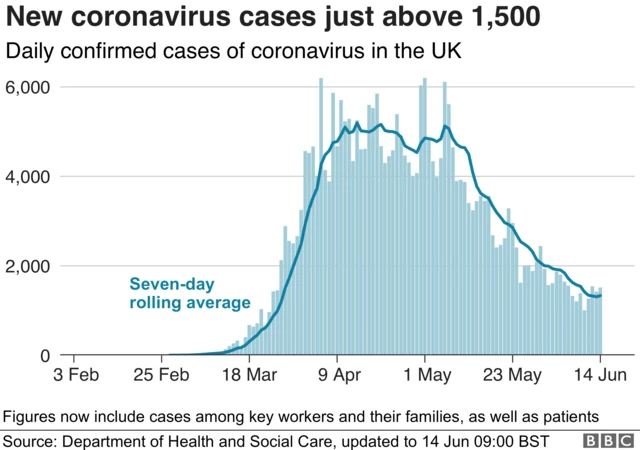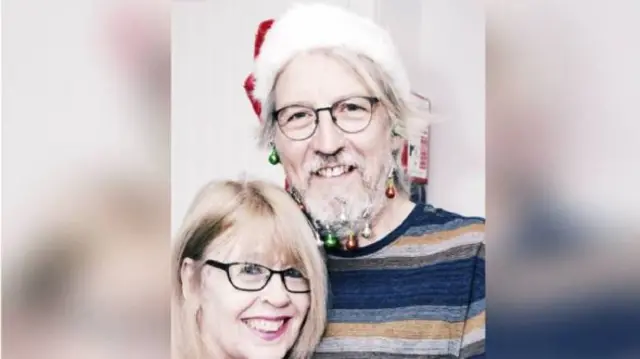That's all for now - thanks for reading!published at 19:00 BST 14 June 2020
As we come to the end of today's live coverage, here is a round-up of key developments.
- The UK recorded its lowest daily death toll since before lockdown. Figures showed a further 36 people had died with coronavirus across all settings. However, the numbers tend to be lower at the weekend due to reporting delays
- Prime Minister Boris Johnson has said people should be able to "shop with confidence" when non-essential stores reopen in England on Monday
- India is to convert 500 railway carriages to create 8,000 more beds for coronavirus patients in Delhi as infections surge
- The number of coronavirus cases in Pakistan could more than double by the end of this month and peak at 1.2 million a month later, the country's planning minister has warned
- Spain will lift border checks with all other EU countries in the Schengen Zone, except Portugal, from 21 June, Prime Minister Pedro Sánchez has said
- The Iranian government has reported its daily coronavirus death toll has risen above 100 for the first time since April
- Chile, Argentina, Peru and Colombia have reported a record number of Covid-19 infections in the past 24 hours
And finally... you've been kept up-to-date today by our team of reporters in the UK: Rebecca Seales, Vicky Baker, Joshua Cheetham, Becky Morton, Alex Therrien, Sarah Collerton, Ashitha Nagesh, George Wright and Victoria Lindrea. Our colleagues in Singapore will be resuming live coverage at 0500 BST on Monday.
